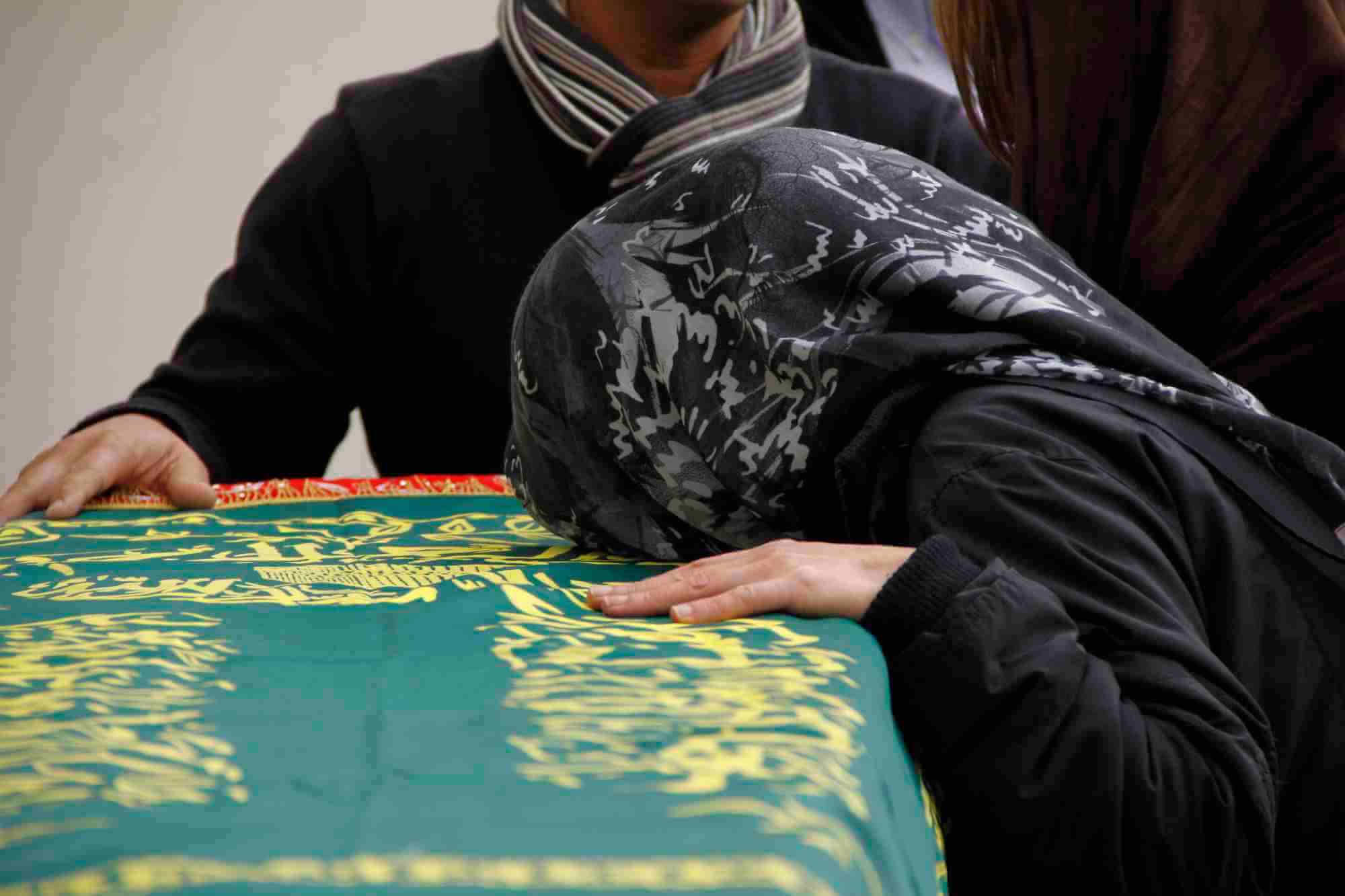What happens at a Muslim funeral service?
A Muslim funeral service takes place very quickly, ideally within 24 or 48 hours of death provided that the deceased did not pass away in circumstances that require investigation.
It is traditional for the whole community to attend a Muslim funeral, even for those who did not know the deceased or their family well. There are no eulogies at a Muslim funeral, only prayers and readings from the Koran. The imam leads the prayers, which are then repeated by mourners.
The mood of the funeral is sombre and formal. Crying quietly is expected and accepted, but more extravagant expressions of grief such as loud wailing is offensive to followers of Islam because it expresses discontent with the will of God. It is more appropriate to convey grief physically by wearing mourning dress and avoiding makeup, perfume and ornaments of all kinds.

What happens at a Muslim burial UK?
In keeping with the tradition of burying the deceased as soon as possible, a Muslim burial takes place immediately after the funeral service.
The body, wrapped in white sheets, is then carried to the gravesite by male relatives. Men will be wrapped in three sheets and women in five. The grave is dug parallel to Mecca and the body is placed in the grave lying on its right side, facing in this direction (southeast in the UK).
No coffins are used in a Muslim burial and the body is interred wrapped in a shroud. Close male relatives prop up the head, chin and shoulder with balls of hand-packed soil. Other mourners assist in the burial by throwing three handfuls of earth into the grave while reciting more prayers in Arabic.
After the body has been interred, mourning begins. The official mourning period after a Muslim funeral is three or fifteen days, depending upon which sect the deceased belonged to.
Official mourning is a time during which mourners visit the home of the deceased’s family to pay their respects, offer condolences and bring gifts of food. Flowers are not traditionally given, but are also acceptable gifts during this time.
The only exception to the three-day mourning period is for the deceased’s wife, for whom mourning lasts for four months and ten day regardless of sect.
What to wear to a Muslim funeral
Funeral attire must be modest and non-Muslims attending a Muslim funeral should take care to ensure that their dress style is appropriate for the occasion.
Although black clothes are an appropriate choice when deciding what to wear to a Muslim funeral, they are not necessary. The traditional colour for Muslim funeral dress is white, but any sober colour will do and dark colours are a good choice. Avoid patterns unless they are very subdued and will not stand out.
Mourners must take off their shoes in order to enter the prayer hall at a Muslim funeral, so make sure that your socks are appropriate for the occasion. They should be clean, without holes and ideally in a dark colour without patterns. Tights are acceptable footwear for women in the prayer hall.
Mourners of both genders should wear loose fitting clothes. Men should wear a long-sleeved shirt and trousers that do not reveal any skin. Women should wear ankle-length skirts, long-sleeved blouses and cover their hair and necks.
Any bright or flashy accessories, such as jewellery and watches with gemstones, should be removed or concealed. Women should not wear makeup.
If you are in any doubt with regards to what to wear to a Muslim funeral, ask the family of the bereaved for advice.
